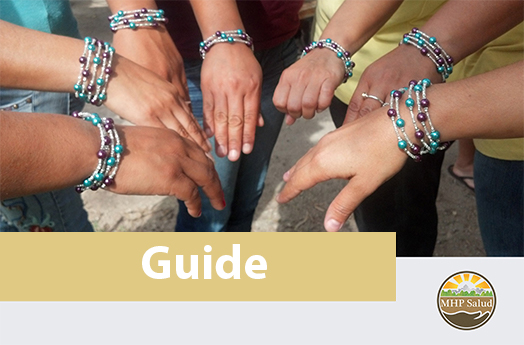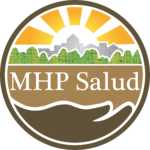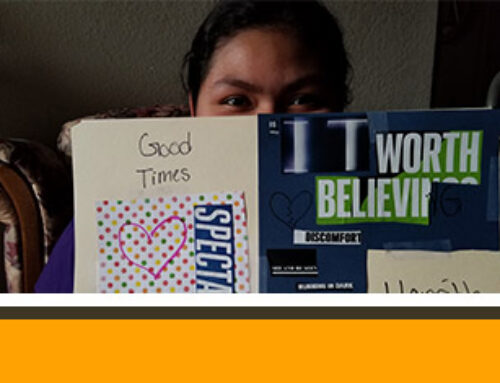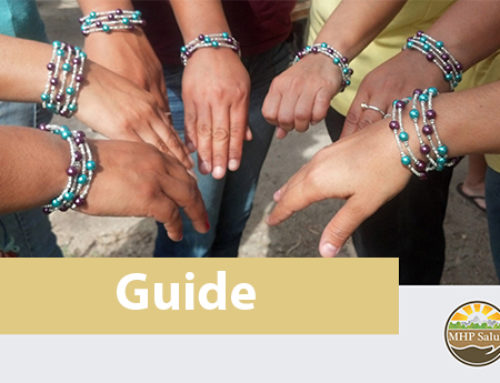Community Health Worker Programs Get Creative to Support Survivors of Domestic Violence
February 2020
Domestic violence affects nearly 10 million individuals and families a year regardless of race, gender or socioeconomic status.1 However, women make up a disproportionately higher number of domestic violence cases.2 In fact, 1 in 4 women have experienced severe physical violence by an intimate partner in their lifetime.3
Although domestic violence does not discriminate, Latinas face unique challenges that often prevent them from seeking help. Language barriers, financial hardships, fear and lack of information on resources all contribute to the challenges that make addressing domestic violence particularly difficult for this population. Furthermore, 50% of Latinas who experience abuse never report it. 4 Studies have shown that Latina survivors prefer to talk with family members and friends, however seeking formal help has shown to reduce depression amongst the population.5
For years, MHP Salud has implemented Community Health Worker (CHW)-led programs to address the challenges faced by Latina survivors of sexual assault, intimate partner violence, and stalking. The programs help individuals by providing a safe space for them to connect with other survivors, information on resources and social support.
Successful Programs for Intimate Partner Violence Survivors in Texas and Florida
Aprendiendo Lecciones del Arte de Sobrevivir (Learning Lessons on the Art of Survival) is MHP Salud’s Community Health Worker-led program that helps Latina survivors of sexual assault by creating a network of peer support and providing opportunities for them to share experiences and perspectives with other survivors. The program operates within Spanish-speaking rural communities of Texas and Florida. Agriculture is the prominent industry in many of the communities, and the families are isolated from the resources that individuals living in urban centers may have access to. As these areas often have little to no direct access to community resources, individuals may have difficulty seeking help.
One such solution to alleviate the impact of isolation is Community Health Workers. They are able to mobilize and meet families and individuals directly where they are – bringing critical services into these communities. The CHWs that work on Aprendiendo Lecciones del Arte de Sobrevivir use door to door outreach and coordinate with local organizations, like churches, schools and head start centers. Through these methods, the CHWs are able to locate and invite survivors to participate in group sessions, where they can meet other survivors and talk about their experiences. These group sessions meet once a week through a six-week period.
During these sessions, Community Health Workers also lead activities that are informative, empowering and have therapeutic value. These meetings always begin with a group activity or discussion. For example, one activity asks individuals to think about a personal skill or hobby that can be leveraged as a side business to provide an additional source of income. This discussion helps survivors recognize and acknowledge the scope of their independence. It also provides an opportunity for participants to network, collaborate and support each other. For many, these connections and support help set the building blocks to actualize their goals.
Using Art to Engage and Empower Survivors of IPV
Activities that enable self-expression are a key component of Aprendiendo Lecciones del Arte de Sobrevivir. Group sessions include activities that have participants creating custom jewelry, piecing together vision boards, and decorating shoe boxes to use as time capsules. They write passages in journals to put into their time capsules and cut out inspiring images from magazines to place on their vision boards.
When creating these projects, participants are asked to draw from positive experiences they’ve had or ones they seek to have in the future. These activities help participants pinpoint and visualize positive aspects of their lives, now and in the future, and once completed it gives them a sense of accomplishment. Further, they help survivors process feelings, reduce stress and anxiety, and increase self-esteem.
This guide that contains information and suggestions are useful to Community Health Workers (known as Promotores/as de Salud in the Spanish-speaking communities), or program directors looking to implement a support program for sexual assault survivors. It is available for immediate download after registration to our resource portfolio. Sign up for free!
Social Support and IPV
For many Spanish-speaking survivors, social support from individuals they are comfortable with plays an important role in their recovery. Informal help-seeking from family and friends occurs more frequently with this population, than formal help-seeking. 6 This in fact lends itself to the very nature of a Community Health Worker. Because CHWs are from the same community, speak the same language and understand the culture of the communities they serve, they can establish close relationships and build trust with survivors that other health professionals may find difficult to do.
This close relationship also opens the door of opportunity for CHWs to refer individuals to formal help from organizations that understand the Latino culture and provide bilingual support. These referrals are crucial to getting services that provide safety resources and information on the rights of survivors so that they can make informed decisions when faced with difficult life choices.
Ultimately, the activities in this program are designed to enhance survivors over all well-being and quality of life. CHWs are there to help them achieve this by providing activities that work to establish self-efficacy, self-determination, and a sense of hope.
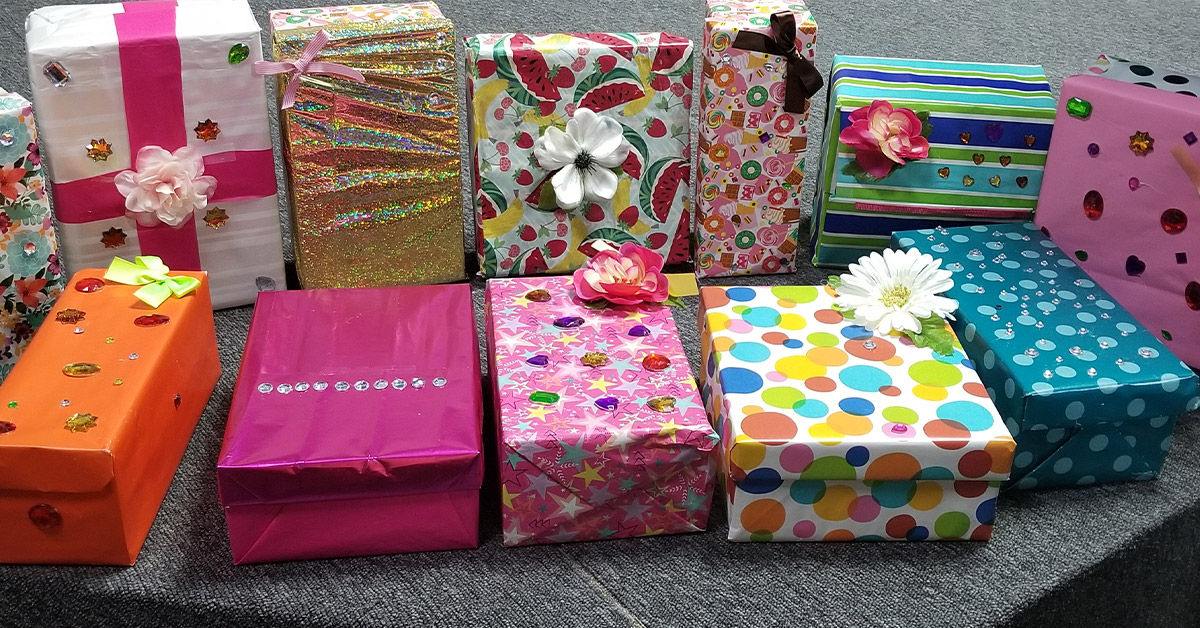
CHWs from our El Arte de Sobrevivir program provide materials to decorate shoe boxes to use as time capsules for the survivors. Each survivor will then write passages in journals, create jewelery, and pick out their favorite photos to put inside. The boxes are stored away in a safe place that is accesible to each survivor so that they can open them at a later date.
MHP Salud has a history of creating CHW-led programs that address domestic violence in order to help survivors in underserved Latino and Hispanic communities across the U.S.:
MHP Salud programs that promote healthy relationships are tailored to meet the needs of the local community, and most follow a successful model led by a Community Health Worker (CHW).
Voces Unidas (United Voices): In Voces Unidas, CHWs identify local leaders in communities within Texas and Florida, and train them to work as peer support leaders. Together, they conduct outreach, provide information and education, form support groups and refer women to individual or group counseling. CHWs in Voces Unidas also serve as advocates for sexual assault survivors. They work to expand the services available in underserved communities by promoting awareness and action.
Amigas de Lenawee Moviéndose Adelante (Lenawee Friends Moving Forward): Amigas de Lenawee Moviéndose Adelante, CHWs support survivors of sexual assault in Lenawee County, Michigan by establishing peer networks that allow them to share experiences and perspectives with each other. CHWs also refer survivors to services provided by our partners, the Family Counseling and Children’s Services of Lenawee County’s Catherine Cobb Domestic Violence and Sexual Assault Program.
Un Nuevo Mañana (A New Day): Un Nuevo Mañana provides support through outreach and education to sexual assault survivors in low-income, Spanish-speaking communities along Texas’ southern border. These communities are often referred to as colonias. Residents in colonias often don’t have access to reliable transportation and can have misconceptions about sexual assault. Community Health Worker’s shared cultural background with the community allows them conduct outreach comfortably, within the colonias. This access helps CHWs effectively address concerns and eliminates the need for residents to travel outside of their communities.
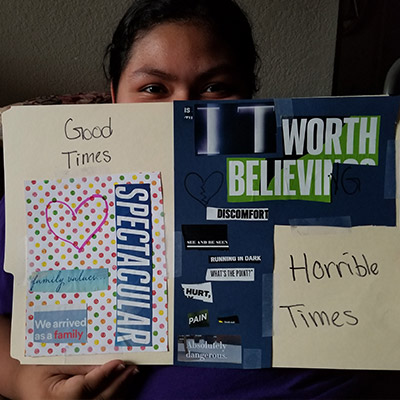
A woman holds up a vision board filled with clippings from a magazine meant to represent different aspects of her life that she can reflect on.
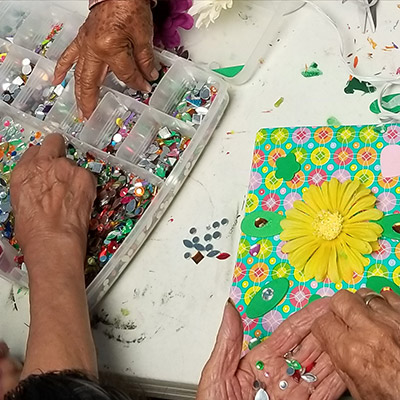
CHWs incorporate jewerly making into sessions to enourage self-expression and reduce stress.
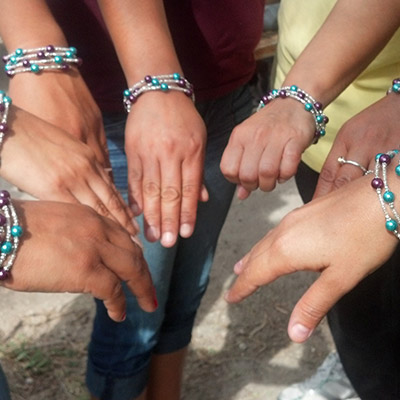
Completed projects often give survivors a sense of pride and accomplishment.
Through peer support groups, creative activities, and a network of resources, Community Health Workers can lead the charge in changing cultural norms around healthy relationships. Although MHP Salud’s programs were implemented in predominantly Spanish-speaking communities, the implications for success are there for any community.
To learn more about our Community Health Worker interventions that support healthy relationships visit the Community Health Worker Program page.
About MHP Salud
MHP Salud has over thirty years of experience implementing CHW programs and training organizations looking to start and/or strengthen their own CHW programs. For more information about MHP Salud, our services, and how we can help you, please email us at info@mhpsalud.org
References
- https://assets.speakcdn.com/assets/2497/domestic_violence2.pdf
- https://www.cdc.gov/violenceprevention/pdf/NISVS-StateReportFactsheet.pdf
- https://ncadv.org/statistics
- https://www.decimosnomas.org/wp-content/uploads/4.16-NO-MAS-STUDY-media-findings-FINAL-FINAL-updated-Avon-logo-11.16.15.pdf
- Cuevas, C.A., K.A. Bell, and C. Sabina, Victimization, psychological distress, and help-seeking: Disentangling the relationship for Latina victims. Psychology of Violence, 2014. 4(2): p. 196-209. https://psycnet.apa.org/record/2014-12472-003
- https://www.ncjrs.gov/pdffiles1/nij/grants/230445.pdf

